Most OEM automakers currently use BMC thermosetting materials to manufacture automotive reflectors. The advantages of BMC materials include high temperature resistance, high mechanical strength, dimensional stability, chemicals resistance and UV resistance. However, BMC materials tend to cause air traps. In this case, TYC’s BMC headlight product (Fig. 1) displays visible air trap defects in the specific area. Since thermosetting materials cannot be reused, it is particularly important to resolve this issue to avoid excessive material waste. Therefore, TYC utilized Moldex3D to modify the product design and validated it through actual trials. Ultimately, they were able to manufacture optimized products without air traps successfully. TYC utilized Moldex3D to prevent air traps and revise the gate locations to attain the optimized design. The main objective of this case is to prevent visible air traps on the headlight products. In order to solve this problem, TYC utilized Moldex3D to find the optimum gate positions to balance the melt flow and further change the part thickness to prevent air traps. Firstly, TYC utilized Moldex3D Solid module to simulate the molding scenario of the original design. According to the simulation results, TYC found out that air traps would occur in the thick region at the cavity side. This molding defect would have a direct negative impact on the product’s physical appearance. To address this issue, TYC proposed a new design with revised gate locations (Fig. 2) and modified thickness of the air trap region (Fig. 3). According to Moldex3D simulation results of the revised design, the new fan gate was able to effectively change the melt flow path, and the air trap issue could be resolved successfully. The overall product appearance of the revised design was significantly improved. After the design changes, TYC used Moldex3D eDesign to simulate both the original design and the optimized design. The analysis results of the original product design showed an obvious flow imbalance where the thickness changes, resulting in air trap formation (Fig. 4). In the revised design, there are no obvious air traps due to different flow behaviors. Its surface defects can be successfully eliminated and the final product will have a smooth surface without air traps. Next, when comparing with the actual mold trial results, TYC found that Moldex3D simulation analysis results were strongly correlated with the actual mold trial results (Fig. 5). Through Moldex3D analysis, TYC clearly understood the filling behaviors in the mold and predict potential defects on the product prior to the actual production. The accuracy of Moldex3D simulation analyses were later validated by the actual mold trials. In the end, TYC was able to successfully solve manufacturing issues and optimize product and mold designs. It helped them efficiently reduce mold trial and mold modification costs. Bimetallic conical twin barrel and screw Conical Twin Screw Barrel Extrusion Machine,Conical Extrusion Screw,Extrusion Machine Conical Screw Barrel ZHEJIANG JINJIA PLASTICS MACHINERY CO., LTD , https://www.jinjiascrew.com
TYC Brother Industrial Co., Ltd. is one of the world’s largest manufacturers of automotive, motorcycle, truck and bus lighting products. It is a worldwide supplier of lighting products for all functions to both original equipment manufacturer (OEM) and automotive part replacement markets in North America, Europe, Asia-Pacific, Africa and Middle East. (Source: www.audix.com/index_en.aspx) Executive Summary
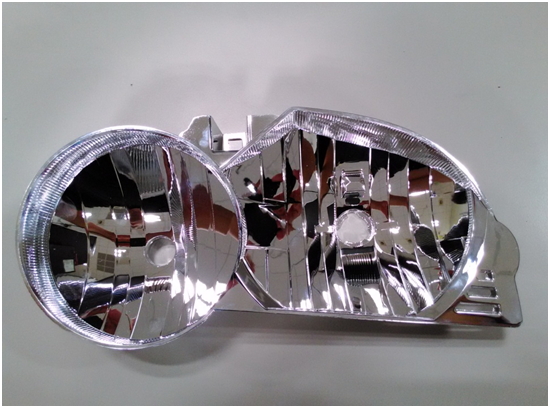 Fig. 1  TYC’s headlight product in this case
Fig. 1  TYC’s headlight product in this caseChallenges
Solutions
Benefits
Case Study
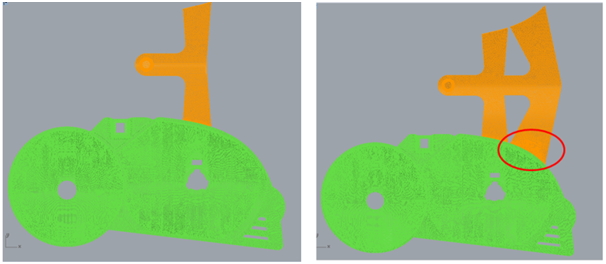 Fig. 2 Â Original Design (left) and Revised Design (right) with modified gate locations
Fig. 2 Â Original Design (left) and Revised Design (right) with modified gate locations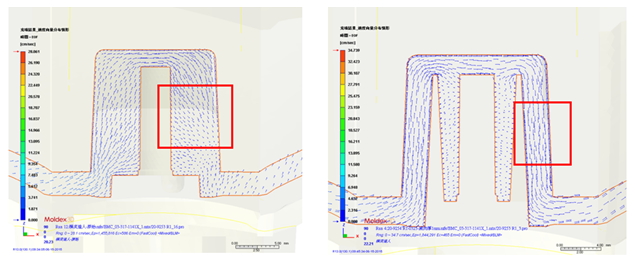 Fig. 3 Â Original Design (left) and Revised Design (right) with modified thickness of the air trap region
Fig. 3 Â Original Design (left) and Revised Design (right) with modified thickness of the air trap region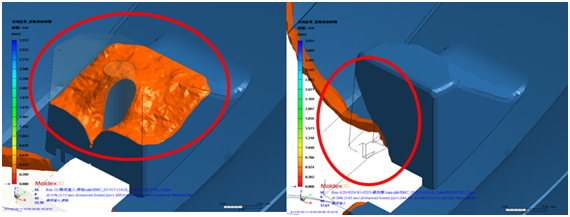 Fig. 4 Â Original Design (left) has obvious air traps while and Revised Design (right) has no air traps
Fig. 4 Â Original Design (left) has obvious air traps while and Revised Design (right) has no air traps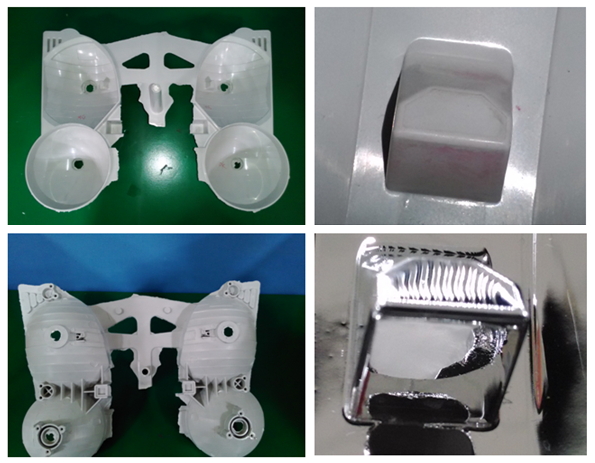 Fig. 5 Â The actual trial result of the optimized design. There are no air traps observed.
Fig. 5 Â The actual trial result of the optimized design. There are no air traps observed.Results
Leading Automotive Parts Provider Resolved Air Trap Issue of the Headlight Product through Moldex3D
Customer Profile